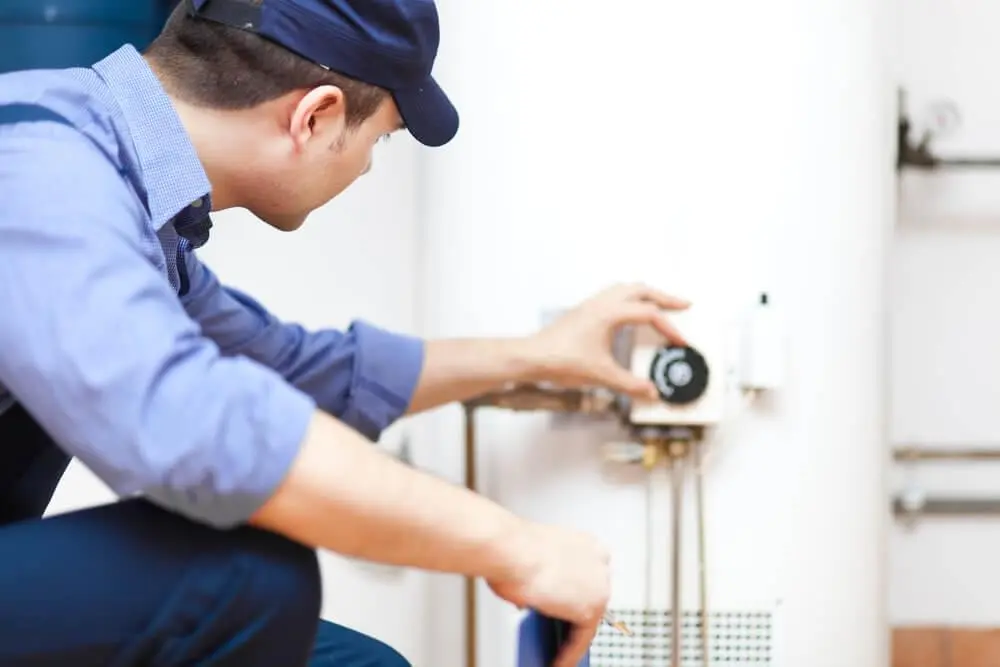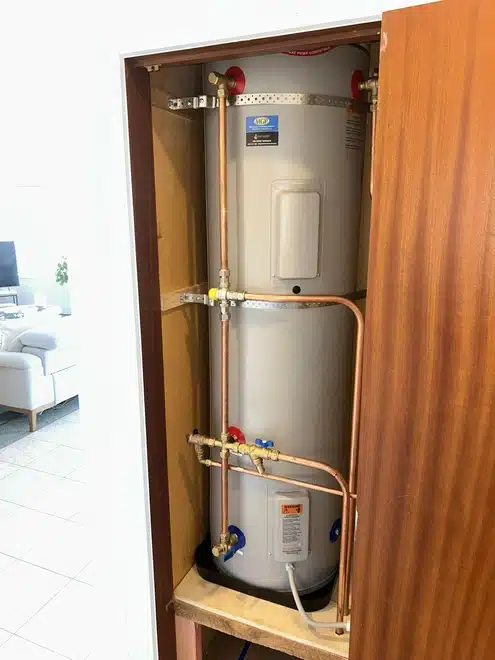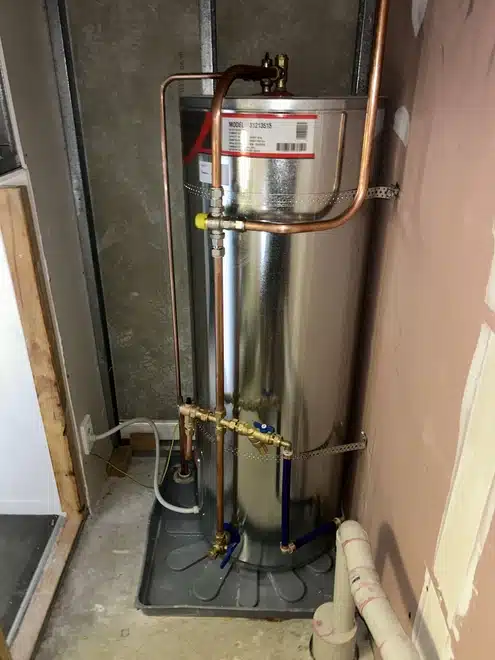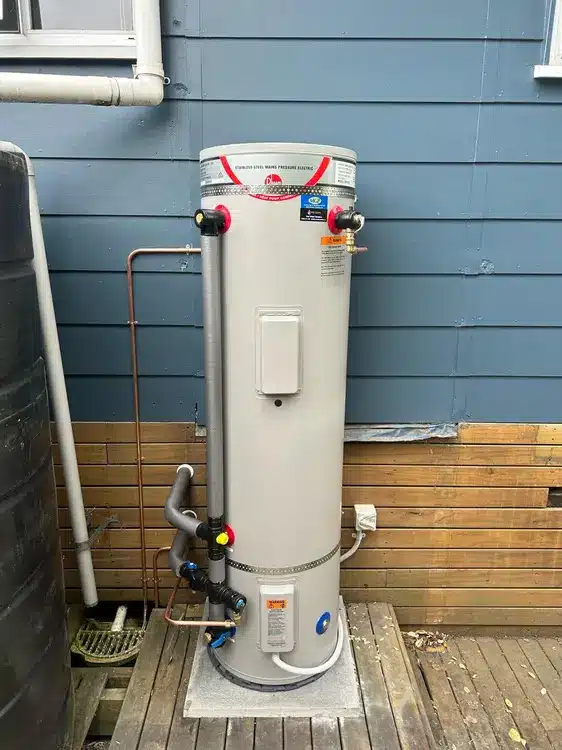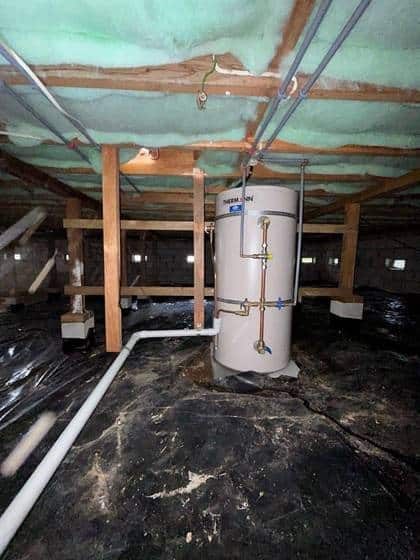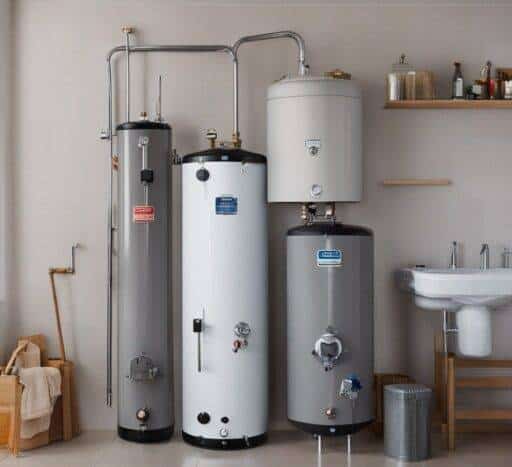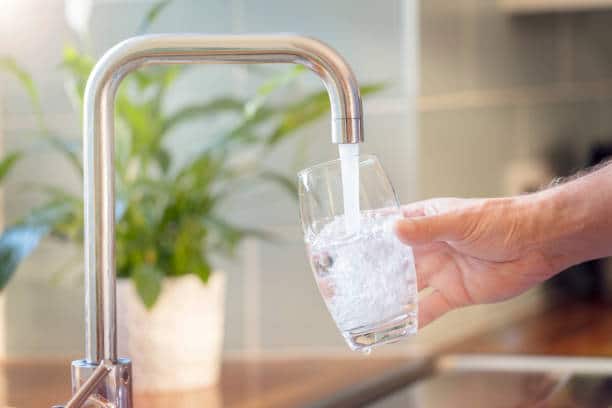Why Hot Water Temperature Matters
Water that is too hot or two cold can lead to a number of problems:
Scalding Risk – Water above 55°C increases the risk of burns and scalding accidents. However, water below 60°C may not kill germs effectively.
Bacterial Growth – Temperatures below 60°C enable bacteria like Legionella to rapidly spread. Proper hot water temperature helps control bacteria.
Energy Efficiency – Water heated above 60°C wastes energy and drives up power bills. Insufficient heating also reduces energy efficiency.
Corrosion & Sediment – Overheating cylinder water can accelerate mineral corrosion and sediment build-up requiring pricey repairs.
Comfort – Lukewarm water may not meet household hot water needs for showers, washing, and other uses.
Clearly, optimizing your hot water cylinder temperature provides health, efficiency, cost, and comfort benefits.
Determining Correct Temperature Range
Most experts recommend keeping your hot water cylinder within 55°C to 60°C for optimal performance. Here are the key guidelines:
At least 55°C to effectively kill dangerous bacteria like Legionella.
No higher than 60°C to avoid energy waste and minimize corrosion.
Maximum of 55°C for bathing to reduce scalding risk.
This temperature range balances bacteria control, energy efficiency, equipment longevity, and comfort. Digital mixing valves help further regulate temperatures at points of use.
Checking Your Cylinder Temperature
The only way to know your current hot water temperature is to measure it. Here are some tips:
Use a thermometer – A simple cooking thermometer can measure your cylinder water temperature through the drain valve.
Install a digital readout – Some cylinders have built-in digital temperature displays for ongoing monitoring.
Consult your plumber – A plumbing professional can use specialized tools to accurately measure your hot water temperature.
Test at your tap – For a rough estimate, run your hot tap for 90 seconds then use a thermometer.
Regularly monitoring temperatures is key to maintaining optimal conditions.
Adjusting Your Cylinder Thermostat
If your hot water temperatures are outside the recommended range, adjusting the thermostat on your cylinder is typically required. Here are some tips:
Locate your thermostat – Usually found at the bottom or side of the cylinder. Consult manuals or your plumber.
Check manufacturer guidance – Recommended thermostat settings are usually in the 60°C to 70°C range.
Increase if under 55°C – To control bacteria, the World Health Organization suggests temperatures above 60°C.
Decrease if over 60°C – For energy efficiency and equipment longevity, keep under 60°C.
Make small incremental adjustments – Change by 5°C increments until reaching optimal range.
Allow 24 hours to stabilize – Measure again a day after adjusting before making further changes.
With a little trial and error, you can dial in the right thermostat setting to maintain cylinder temperatures between 55°C to 60°C. Just be patient and methodical in your adjustments.
Optimizing Timers and Heating Cycles
In addition to temperature, properly configuring your cylinder heating times and cycles can improve performance. Follow these tips for optimal programming:
Use off-peak timer settings – Set heating cycles to use cheaper overnight power rates whenever possible.
Avoid peak times – Heating during high-demand mornings and evenings drives up costs.
Match usage patterns – Heat water at times just before your household typically uses hot water.
Minimize reheating cycles – Frequent reheating cycles waste energy. Extend heating cycles to limit reheating.
Insulate pipes – Insulating hot water pipes reduces heat loss between cylinder and taps.
With smart timer configuration, you can ensure hot water is heated right when you need it for optimal efficiency.
Considering a Heat Pump Hot Water Upgrade?
If adjusting your existing cylinder still leaves temperatures or energy bills higher than desired, it may be time for an upgrade. Switching to a heat pump hot water system can help improve temperature optimization and efficiency.
Key benefits of upgrading to a heat pump system include:
Better temperature control – Achieve consistent temperatures with less overheating.
Lower energy costs – Heat pumps can reduce water heating bills by 50% or more.
Heats on demand – Provides hot water when needed without using timers.
Qualify for rebates – Government and energy rebates offset installation costs.
Eco-friendly – Heat pumps use less power and reduce carbon emissions.
New warranties & reliability – Modern heat pumps come with longer warranties for peace of mind.
Before upgrading, be sure to size your heat pump appropriately and select a qualified installer.
Maintaining Your Hot Water Cylinder
Proper maintenance alongside temperature optimization is key to a long-lasting hot water cylinder. Follow these tips:
Flush annually – Drain and flush the cylinder once a year to prevent sediment buildup. Hire a plumber if needed.
Inspect anodes – Check the sacrificial anodes every 2-3 years and replace if corroded. Anodes prevent tank corrosion.
Monitor pressure – Use a pressure valve to ensure water pressure stays between 200 to 500 kPa for safety.
Insulate pipes & cylinder – Maintain insulation to minimize standby heat loss and waste.
Watch for leaks – Drips, rust stains or damp spots can indicate leaks requiring cylinder repairs or replacement.
Clean inlet filter – An inline filter catches debris but needs periodic cleaning.
Descale as needed – Hard water can cause scale requiring descaling chemicals or professional cleaning.
Consider catchment – Using rainwater can minimize cylinder corrosion and sediment.
With proper care and maintenance, your hot water cylinder can provide reliable hot water for many years past its warranty period. Talk to a plumber about the best ways to maintain your specific cylinder.
Final Words
Achieving optimal cylinder water temperature improves health and safety, efficiency, equipment longevity and household comfort. Monitoring and adjusting temperatures along with upgrading aging cylinders can help maximize the performance of your hot water system. With the right settings, your hot water cylinder can operate reliably and cost-effectively for years to come.
Use our contact us page to reach us and we will be more than happy to help out. Give us a call on 0800 497658.
At Hot Water Solutions all we do is hot water.

